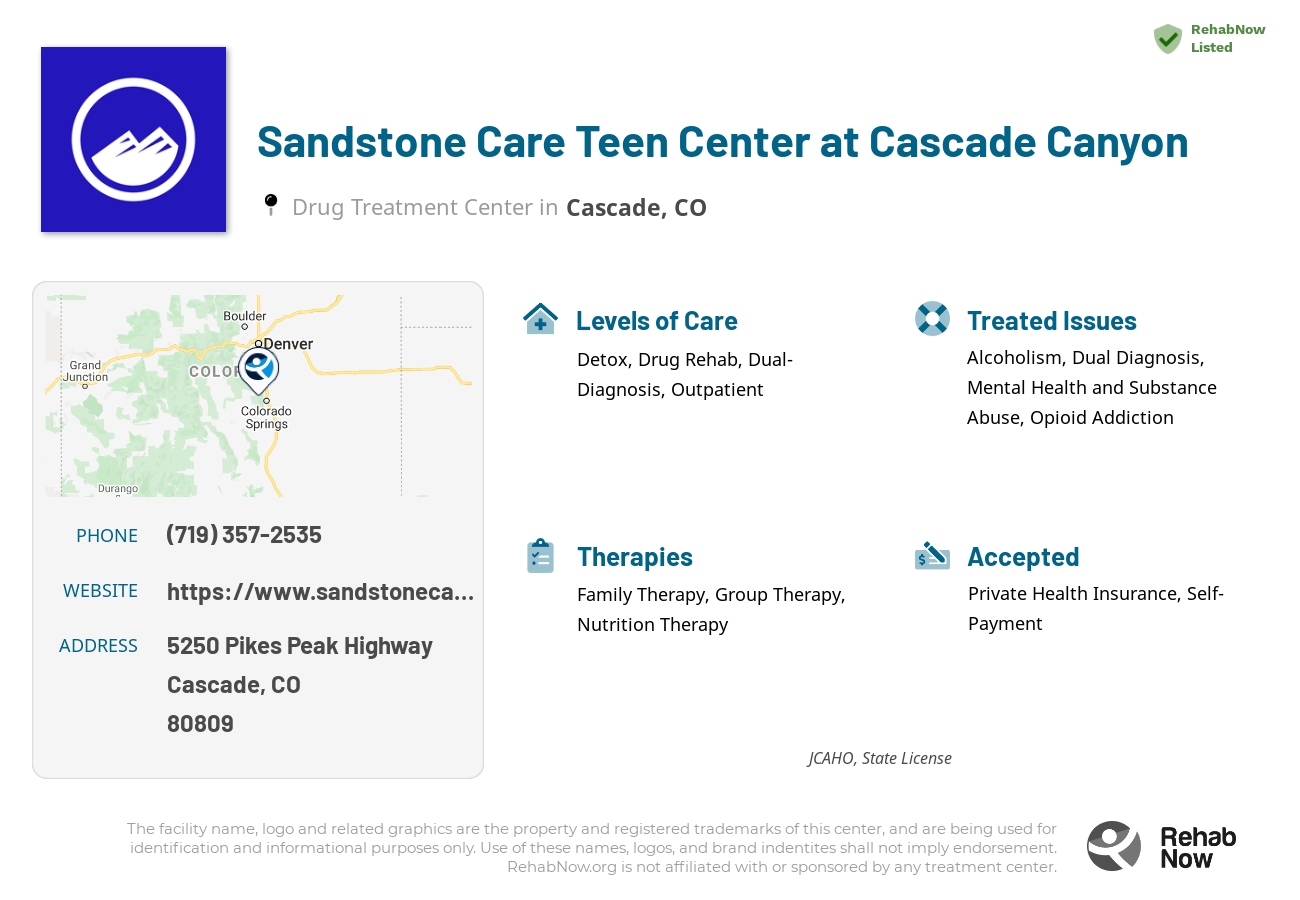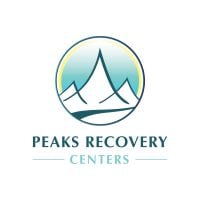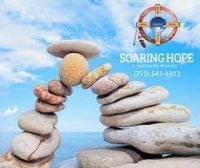Sandstone Care Teen Center at Cascade Canyon
Drug Rehab Center in Cascade, Colorado
Sandstone Care Teen Center at Cascade Canyon offers a comprehensive accredited, licensed, and LegitScript drug rehab program utilizing evidence-based individual, group, and MAT therapies to tailor addiction treatment specifically to each client's needs.
Multiple patients have reported Sandstone Care Teen Center at Cascade Canyon as permanently closed.
Research other rehabs in Cascade, Colorado, or get help finding an open facility.
About This Colorado Facility
Sandstone Care Teen Center at Cascade Canyon, located in Cascade, Colorado, specializes in helping teens, young adults, and their families overcome substance abuse, addiction, and mental health challenges. Their mission is to provide the motivation, tools, steps, and community support for lasting recovery outcomes.
- Offers comprehensive treatment for alcoholism, drug addiction, dual diagnosis, mental health conditions, and opioid addiction
- Utilizes evidence-based practices and personalized treatment plans tailored to individual needs
- Provides a supportive, structured environment conducive to lasting recovery
Sandstone Care Teen Center is accredited by LegitScript, JCAHO, NAATP, and holds a State License, ensuring adherence to industry standards and quality care. They offer a range of treatment options, including detox, drug rehab, dual-diagnosis, outpatient, and inpatient programs.
The facility specializes in treating individuals struggling with alcoholism, opioid addiction, dual diagnosis (co-occurring substance abuse and mental health disorders), drug addiction, and substance abuse. Treatment methods include detoxification, rehabilitation, and integrated care for dual diagnosis.
Genders
Ages
Modality
Additional
Accreditations
State License
NAATP

LegitScript

JCAHO
Conditions and Issues Treated
Substance Abuse Treatment is important when getting sober, as it helps addicts learn the skills they need to live a clean life. There are many different kinds of recovery treatment, including medication-assisted therapy, behavioral therapeutic approaches and self-help groups, as well as counseling.
Opioid abuse has become a national epidemic in the last decade. The US has one of the world’s highest rates of opioid use and abuse, as well as opioid-related deaths. Opioids are classified as Schedule II-IV controlled substances in the US due to their high potential for abuse.
Oxycodone, hydrocodone, methadone, and fentanyl are the most common Opioids and are commonly prescribed to treat pain. Tolerance to opioids develops over time, making life difficult, if not impossible, without them. Opioid users often obtain the drugs illegally. They can be drug dealers, friends, or family members who do not have valid prescriptions.
The desire for a more intense high than prescription opioids can quickly lead to heroin use. Heroin users are more prone to illness and death due to the high risk of overdose.
Many opioid addicts who seek treatment believe that the only way to overcome their addiction is through medical detox and long-term drug addiction rehab. To help patients wean off their addiction and reduce the risk of overdose, medication-assisted therapy (MAT) involves prescribing a replacement opioid. Doctors use MAT in conjunction with other anti-craving medications to help patients maintain recovery. Due to the high risk of relapse, MAT is often combined with individual and group counseling and social support programs.
When addiction and psychiatric issues co-occur, the addict’s recovery is more successful when both conditions are treated. A dual diagnosis refers to a condition in which the patient is diagnosed with two health issues: addiction and bipolar disorder. The most common therapies are psychotherapy, behavioral therapy, spiritual counseling, 12-step programs, and medication management.
Levels of Care Offered at Sandstone Care Teen Center at Cascade Canyon
This center offers a variety of custom treatment tailored to individual recovery. Currently available are Detox, Drug Rehab, Dual-Diagnosis, Inpatient, Outpatient, with additional therapies available as listed below.
The detoxification process typically includes some combination of the following: medical supervision, medication to help alleviate withdrawal symptoms, drug testing to monitor progress, and counseling.
Tackling the physical symptoms of withdrawal is essential to ensure that an individual can focus on the psychological aspects of the addiction without focusing on the physical pain that comes with withdrawal.
Withdrawal symptoms can be uncomfortable, even life-threatening, so carefully managing the detox process is extremely important. In many cases, more advanced pharmaceutical interventions are used to treat more severe withdrawal symptoms. Medication might help alleviate discomfort associated with detox, including nausea and headaches.
Inpatient treatment centers offer a safe, secure, and often medically supervised environment for drug or alcohol-addicted individuals. Many of these facilities are equipped to provide detoxification, treatment for co-occurring mental health disorders, and aftercare programs. The patient typically spends 28 to 30 days at the facility and will receive extensive drug counseling.
An outpatient treatment program is set up to help with alcohol or drug addiction or a co-occurring disorder. The patient must attend the facility for their therapy and other programs but can return home each night.
The frequency of mandatory attendance decreases after much of Sandstone Care Teen Center at Cascade Canyon‘s program is complete.
Outpatient treatment is a recovery approach that allows recovering addicts to live at home while getting rehab for addiction
An outpatient can include day treatments which include attending group sessions one hour per week. A person living in an outpatient environment may be allowed the opportunity to work full time if they choose to and continue studies without interruption from drugs/alcohol.
Outpatient treatment is an option for people who want to maintain their careers and families. Outpatients live at home but attend treatment such as individual counseling, group counseling, or twelve-step meetings during the day.
Therapies & Programs
At Sandstone Care Teen Center at Cascade Canyon , to learn from past mistakes and improve one’s situation, the recovering person meets individually with a therapist. The counselor or therapist will address addiction causes, triggers, mental issues, dual diagnosis, and aftercare plans during this time. This is a very intense and challenging process. Some clients find it easier to open up to someone other than family or friends who understand their struggles with addiction.
Family therapy is a crucial part of drug treatment and getting sober. It is one of the most effective ways to help addicts stay on the path to long-term sobriety. An addict’s family can play a vital part in helping them to avoid relapse. They can spot the warning signs and help them get back on track.
In group therapy, recovering addicts meet with a therapist and other people in recovery. Some groups are closed, meaning only people who share the same addiction or problem can attend. Others are open to anyone who wants to stop using drugs or drinking alcohol. Group therapy sessions typically focus on one topic each week or month so that recovering addicts can discuss issues they face daily.
Trauma therapy allows people to face and learn from past traumas.
Many people suffer childhood traumas that lead to adult addiction. During treatment at Sandstone Care Teen Center at Cascade Canyon [/type], you can move forward in your recovery and reclaim your sober future! Trauma is a common cause of psychological disorders like Addiction Disorder. It’s common in Addictive Disorders patients because traumatized people have strong emotions or thoughts that lead to addictive behaviors.
Dialectical Behavior Therapy (DBT) is a type of therapy created in the late 1980s and early 1990s. It was designed to help people with high rates of suicidal behavior.
The goal of DBT is to teach mindfulness, distress tolerance, emotion regulation, and interpersonal effectiveness to help people learn how to live a life that is no longer controlled by overwhelming emotions and urges.
DBT is beneficial in treating drug addiction because it helps patients understand and cope with their cravings for drugs or alcohol rather than turning to those substances as a way of coping.
Cognitive Behavioral Therapy (CBT) is based on the idea that how we feel, think and act all interact together. It helps people explore their thoughts for problems (or false beliefs) that influence their mood and actions. CBT is very goal-oriented, which means that the therapist and patient work together on a specific problem. In addition to helping a client focus on thoughts that can be changed, CBT also allows them to take an active role in their treatment. Our thoughts determine our feelings and behaviors; our feelings affect our thoughts, and our behaviors change our thoughts and feelings.
Eye Movement Desensitization and Reprocessing (EMDR) helps people get sober by changing how they experience emotions. During the treatment, the patient is asked to recall specific memories that relate to their addictions; they do this while following a moving object with their eyes or tapping their hands or feet. This process helps the patient work through their emotions by separating the memory from the distress they feel about it.
Drug and alcohol addiction can lead to a breakdown in life skills. Learning certain life skills can help those who are struggling with addiction. Life skills training at Sandstone Care Teen Center at Cascade Canyon in Cascade, CO teaches patients skills such as time management, budgeting, and social abilities to improve their quality of life and prevent relapse.
An addict’s life skills are maladaptive, meaning they are counterproductive. An addict may have learned poor time management skills growing up, have a hard time budgeting money, or be socially awkward. An addict’s poor life skills can lead to relapse and the inability to achieve long-term sobriety. Life skills training teaches patients effective coping mechanisms, which can help them live a clean and sober life.
Nutrition therapy has been used to help drug addicts for decades. Many early reports on addiction treatment indicate that some patients recovered from the “satisfying power of food”. For years, this phenomenon has been utilized as a treatment modality in eating disorders for adults, adolescents, and children.
Specific nutrients have been identified that influence neurotransmitters associated with reward pathways of the brain. Studies have shown that carbohydrate loading with complex carbohydrates to elevate serotonin levels was effective in treating bulimia nervosa. This approach prompted researchers to explore the use of this type of nutritional intervention in other disorders.
The goal of nicotine replacement therapy is to provide a safe alternative for people trying to quit smoking. It does this by giving small doses of nicotine that help manage cravings while breaking habits associated with cigarettes.
Nicotine Replacement Therapy (NRTC) uses products like skin patches and gum that deliver low-dose nicotine, which prevents cravings in those quitting. This makes it easier for them to make a gradual transition from smoker to non-smoker.
Patient Experience
Creative Arts
Creative arts therapy is an expressive process that helps people in recovery explore feelings and emotions. While the goal isn’t always to create a final product, it’s therapeutic for many patients. They can express themselves by journaling or other forms of creative expression. Activities include sketching, painting, sculpting, etcetera. All help them handle stress and anxiety better than before their addiction (and even when they were). The activity improves communication skills and the ability to process traumatic events from one’s past, often triggered during periods of withdrawal/relapse. This benefit makes this form of treatment popular among addicts who don’t want prescription drugs but need something more substantial than talk sessions with counselors.
Experiential Therapy at Sandstone Care Teen Center at Cascade Canyon
Experiential Therapy is a different way of thinking about addiction treatment. It uses physical activities to help work through troubling emotions, memories, and trauma that are sources of psychological issues like addiction.
Experiential Therapy can be an effective option for those who have struggled with past traumas or challenges associated with life decisions such as drug use. The non-traditional approach helps people deal more effectively with these struggles. It also allows them to gain new perspectives on their behavior patterns by recreating experiences in healthy ways rather than continuing old habits that may no longer serve them.
Payment Options Accepted
For specific insurance or payment methods please contact us.
Is your insurance accepted?
Ask an expert, call (888) 674-0062
Sandstone Care Associated Centers
Discover treatment facilities under the same provider.
- Sandstone Care Detox Center in Colorado Springs, CO
- Sandstone Care - Denver Center in Denver, CO
- Sandstone Care - Glenmoor Road in Boulder, CO
- Sandstone Care - Denver in Denver, CO
- Sandstone Care - Boulder in Broomfield, CO
Learn More About Sandstone Care Centers
Additional Details
Specifics, location, and helpful extra information.
Cascade, Colorado 80809 Phone Number(719) 357-2535 Meta DetailsUpdated April 15, 2024
Staff Verified
Is Sandstone Care Teen Center at Cascade Canyon a LegitScript Verified Treatment Facility?
According to our most recent records, we have found this center to be LegitScript verified.
Patient Reviews
There are no reviews yet. Be the first one to write one.
Cascade, Colorado Addiction Information
The Centennial State has slipped to a ranking of 12th in the country for drug abuse. Each year around 24% of the state's population uses illegal drugs while nearly 5% of its population abuses alcohol. Substance-related deaths in Colorado were responsible for 15.12% between 2008 and 2017. Fortunately, Colorado drug and alcohol addiction treatment are available to help a person overcome addiction.
The drug addiction problem in Cascade, Colorado, is unfortunately quite severe. According to recent statistics, there are about 5,000 people who are addicted to drugs in the city. This leads to several problems, including increased crime rates and health concerns. Some of the most common treatments include inpatient rehabilitation, outpatient rehabilitation, and detoxification programs.
Treatment in Nearby Cities
- Vail, CO (90.3 mi.)
- Green Mountain Village, CO (55.4 mi.)
- Rockvale, CO (38.4 mi.)
- Loveland, CO (103.3 mi.)
- Thornton, CO (66.6 mi.)
Centers near Sandstone Care Teen Center at Cascade Canyon
The facility name, logo and brand are the property and registered trademarks of Sandstone Care Teen Center at Cascade Canyon, and are being used for identification and informational purposes only. Use of these names, logos and brands shall not imply endorsement. RehabNow.org is not affiliated with or sponsored by Sandstone Care Teen Center at Cascade Canyon.










